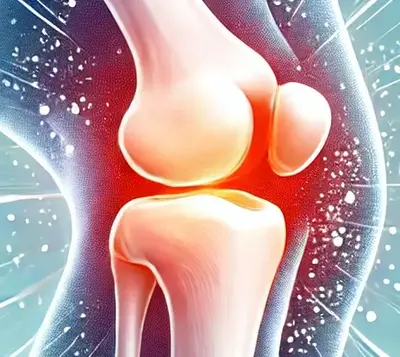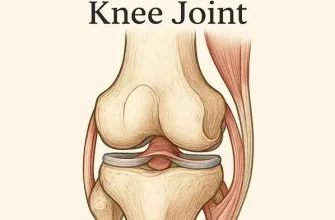Obesity is a growing public health issue, affecting not just our cardiovascular health but also our bone joints. With an estimated 42% of American adults now classified as obese, understanding the connection between excess body weight and joint health is more critical than ever. In this article, we delve into the complex relationship between bone joints and obesity, backed by statistics, medical facts, and expert opinions.
The Science Behind Obesity and Joint Stress
Obesity exerts excessive pressure on bone joints, particularly weight-bearing joints like the knees, hips, and lower back. For every extra pound of body weight, the knees experience four additional pounds of pressure. This means that a person who is 50 pounds overweight is placing an additional 200 pounds of force on their knees with every step they take.
Impact of Obesity on Joint Health
This stress can accelerate wear and tear, increasing the risk of conditions like osteoarthritis. According to the Arthritis Foundation, obesity is one of the most significant risk factors for osteoarthritis, particularly in the knee joint. Recent studies show that roughly 31% of obese adults have been diagnosed with arthritis, compared to only 16% of individuals with a healthy body mass index (BMI).
Key Statistics: Obesity and Joint Health
| Condition | Obese Individuals (%) | Non-Obese Individuals (%) |
|---|---|---|
| Osteoarthritis (Knee) | 33% | 11% |
| Hip Joint Pain | 22% | 9% |
| Lower Back Pain | 40% | 20% |
The above statistics illustrate the heightened risks obese individuals face in terms of joint-related ailments. Excess weight not only damages cartilage but also contributes to systemic inflammation, further complicating joint health. Adipose tissue, or body fat, is an active tissue that releases pro-inflammatory substances, which can exacerbate joint inflammation and pain.
Economic Impact: The Cost of Joint Health
Treating joint problems that stem from obesity can be costly. Joint replacement surgeries, particularly for the knees and hips, are increasingly common among obese individuals. The average cost of a knee replacement surgery in the United States is between $30,000 and $50,000, depending on the hospital and geographic region. This figure can rise further when factoring in rehabilitation and physical therapy.
Practical Medical Insights
Consider a 55-year-old patient diagnosed with severe knee osteoarthritis who weighs 250 pounds. Her physician recommends weight loss as the primary intervention before considering knee replacement surgery. Even a modest weight loss of 10-15 pounds can significantly reduce pain levels and improve joint function, as supported by research indicating that losing one pound of body weight can reduce knee joint pressure by four pounds.
Another example involves patients with hip pain. Many orthopedists now focus on weight management strategies before prescribing medications or considering surgical options. The goal is to reduce mechanical stress on the hip joints, which can, in turn, minimize the need for invasive procedures.
Inflammatory Impact of Obesity on Joint Health
Modern Trends: Non-Surgical Approaches
There is a growing emphasis on non-surgical approaches to managing joint pain in obese individuals. Physicians are recommending lifestyle interventions like diet modifications, low-impact exercises (such as swimming or cycling), and physical therapy to delay or avoid the need for joint replacement surgery.
- Exercise and Mobility: Engaging in low-impact exercises can help reduce weight while strengthening the muscles that support joints. Swimming, for instance, is highly recommended for obese individuals as it minimizes joint stress.
- Diet and Weight Management: Diet changes, particularly those focused on reducing sugar and refined carbohydrates, play a critical role in reducing inflammation and overall body weight.
Expert Opinions on Weight Management and Joint Health
Orthopedic specialists agree that weight management is crucial for preserving joint health. According to Dr. Michael Johnson, an orthopedic surgeon, “Losing even 5-10% of body weight can dramatically improve joint function and decrease pain.” This perspective is increasingly echoed by healthcare professionals who recognize that prevention is far more cost-effective and beneficial than treating advanced joint damage.
In the words of Dr. Sarah Thompson, a physical therapist, “We often see patients who could have delayed or even avoided surgery had they focused on weight management earlier. Exercise, physical therapy, and diet are the pillars of joint health, particularly for those struggling with obesity.”
Advice from Our Editorial Team
If you are experiencing joint pain and have excess body weight, consider making incremental changes to your lifestyle. Small, consistent efforts in weight management can significantly reduce the stress on your joints and improve your quality of life. Start with activities that are easy on your joints, like walking, swimming, or using a stationary bike. Consulting with a physical therapist or a dietitian may also provide valuable guidance tailored to your specific needs.
Obesity and joint health are intricately linked. While the path to better joint health can be challenging, it is worth the effort. Addressing weight issues early can save you from significant pain, expense, and invasive procedures in the future.









